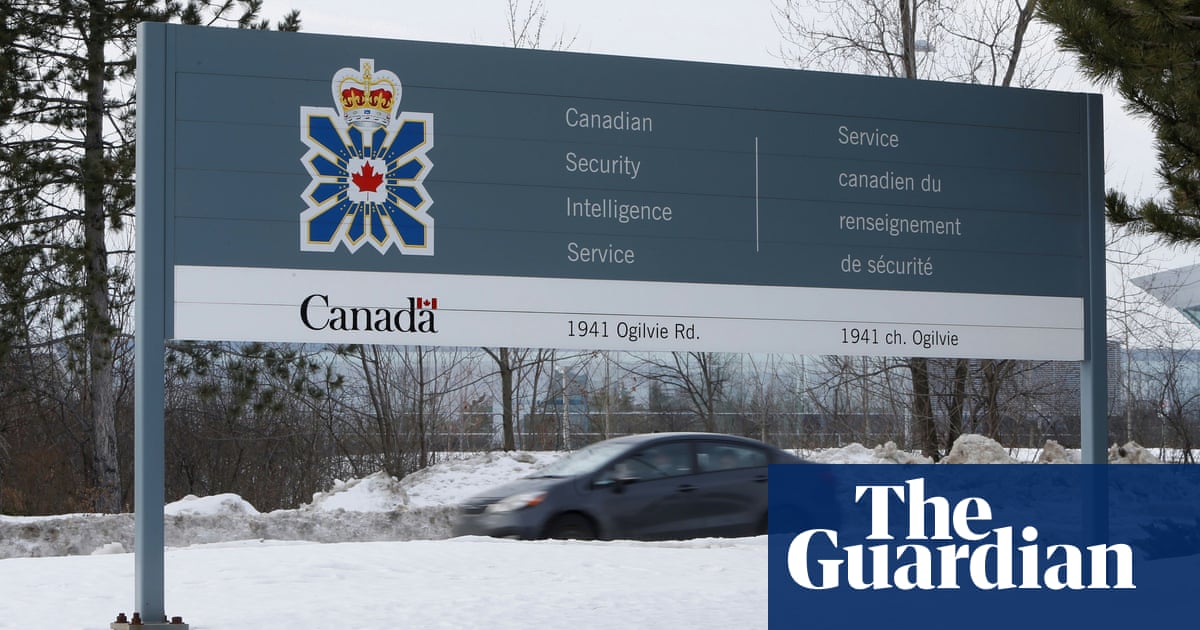
Canada’s spy agency has declared that the governments of India and Pakistan probably attempted to meddle in its elections.
As a closely watched public inquiry investigates the scope of foreign interference, on Thursday night the Canadian Security Intelligence Service (CSIS) released a report suggesting a growing number of countries see Canada – and particularly its large diaspora populations – as a target for subterfuge.
It said India had “intent to interfere and likely conducted clandestine activities” in the 2021 Canadian federal election, including the use of a government proxy agent who attempted to provide illegal financial support to pro-Indian candidates, according to reporting from CBC News.
Proxy agents are a “specific individual who takes explicit and/or implicit direction from a foreign state while obfuscating the link between influence activities and a foreign state”, CSIS said.
It also suggested India targeted electoral districts in which Indo-Canadian voters sympathized with Pakistan or the Khalistan separatist movement.
In 2019, Pakistani government officials in Canada “attempted to clandestinely influence Canadian federal politics with the aim of furthering the Government of Pakistan’s interests in Canada”, CSIS wrote, calling the south Asian country a “limited foreign interference actor”.
The spy agency said the Canadian government conducted a “threat reduction measure” meant to blunt the threat posed by the Pakistan government.
“The situation was monitored and assessed to have effectively reduced the threat of interference,” CSIS said.
Both documents are unclassified summaries and in some cases could be incomplete or rely on uncorroborated, single sources.
The revelations from Canada’s spy agency come as the former Conservative party leader told the inquiry he believed his party lost as many as nine seats because of a foreign misinformation campaign spearheaded by China.
Erin O’Toole resigned as leader after failing to improve his party’s electoral standing.
“The small number of seats would not have impacted the minority government that Canada has right now, but the difference of two, three, five seats may have allowed me more of a moral justification to remain as leader,” O’Toole said, adding he believed some citizens were “intimidated” from voting because the party had a “more traditional, or a more aggressive, foreign policy posture with respect to China”.
The inquiry itself has been the subject of intense public debate. Initially, following reports of Chinese meddling in Canadian elections, the prime minister, Justin Trudeau, appointed David Johnston as special rapporteur to investigate the issue.
Johnston, who previously served as Canada’s governor general, initially caused widespread frustration after he suggested a public inquiry would not be useful because much of the relevant material would remain secret. He later resigned from his role, citing a “highly partisan atmosphere” as political leaders questioned his ties to the prime minister.
In September, the federal government chose Marie-Josée Hogue, a Quebec appeals court judge, to lead a public inquiry “tasked with examining and assessing foreign interference by China, Russia and other foreign states and non-state actors”.
The release of documents suggesting India has sought to undermine the integrity of Canada’s elections does little to ease tensions between the two countries. In September, Trudeau told parliament his government had “credible allegations” that Indian officials were behind the assassination of a prominent Sikh leader in Canada.
The commission has so far heard from lawmakers, the heads of CSIS and the RCMP, the department of global affairs and Canada’s electronic spy agency.
Source: theguardian.com


















